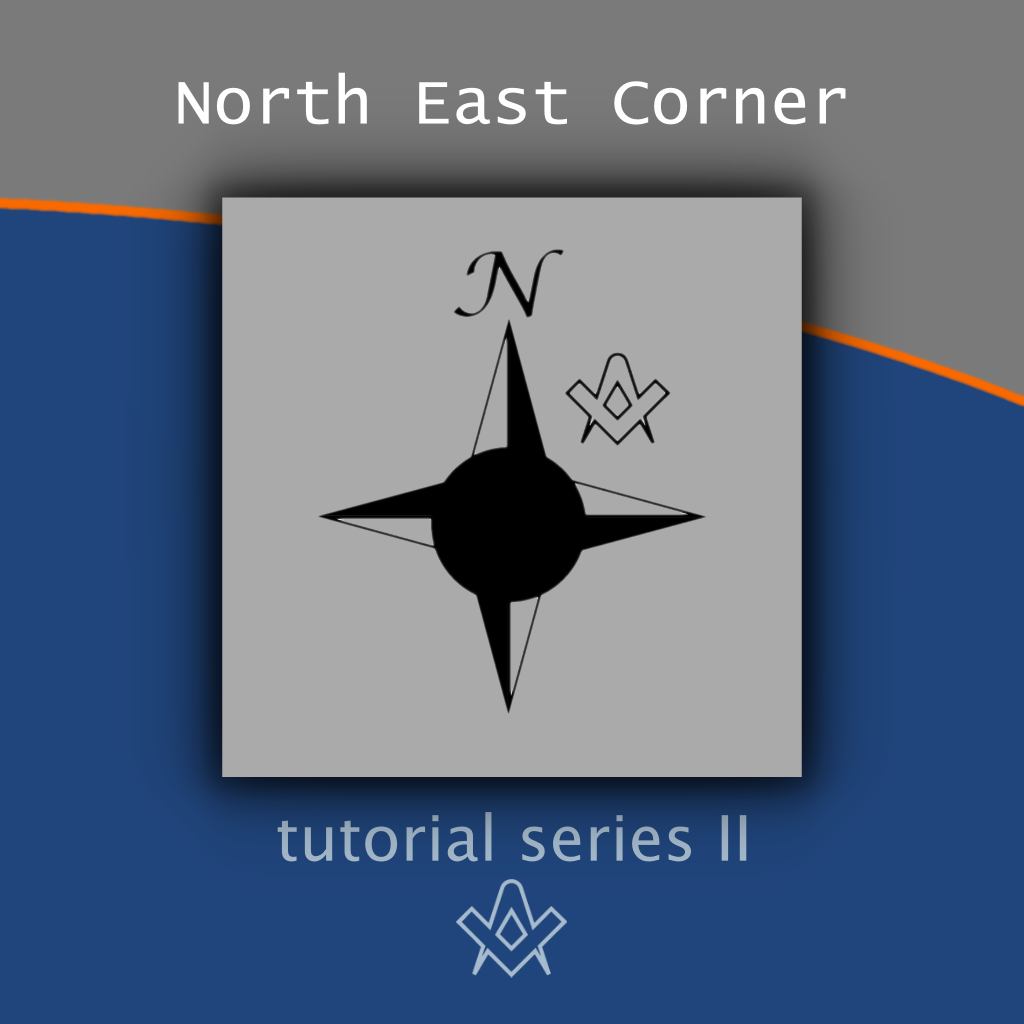In the teaching profession there is a phrase;
“Tell me I will forget, show me I will remember, involve me and I will understand.”
There is no better institution than Freemasonry that understands this phrase more.
All our allegories (stories), are playlets which involve the student (the candidate), taking a major role in the telling of a story which teaches some form of personal development.
The ritual of the NE corner is one such powerful piece of teaching.
Let us examine that piece of ritual more closely. The lesson on Charity.
Video Presentation
It is customary, at the erection of all stately and superb edifices, to lay the first or foundation stone at the north east corner of the building.
You, being newly admitted into Masonry, are place at the north east part of the Lodge figuratively to represent that stone, and from the foundation laid this evening may you raise a superstructure perfect in its parts and honourable to the builder.
Freemasonry became popular in the 17th Century because it was a society of equals, signified by the wearing of the white apron by all its members.
A place where honourable men of different religions and political differences could meet together as brothers.
The newly obligated Mason is placed with his feet in the form of a square to represent the foundation stone, in this instance a rough ashlar, an example of which is on the JW’s pedestal.
In the early ceremonies the rough ashlar would be placed at the candidate’s feet.
In the north east because in all medieval churches this was the situation of the Easter sepulchre, the symbolic tomb of Christ, and as Reverend Neville Barker Cryer explains in his book ‘What Do You Know About Ritual?’ – “from where the first light of Easter came the promise of God’s love and care”.
This seems appropriate for this lesson on charity and brotherly love.
Having been conducted from the West and darkness, to the East in search of light, we find ourselves at a point where the first rays of the morning sun shines through ready to guide us for the rest of the day and through every day thereafter.
You now stand, to all external appearance, a just and upright Mason and I give it in strong terms of recommendation ever to continue and act as such.
Indeed, I shall immediately proceed to put your principles in some measure to the test, by calling upon you to exercise that virtue which may justly be denominated the distinguishing characteristic of a Freemason’s heart – I mean Charity.
I need not here dilate upon its excellences; no doubt it has often been felt and practiced by you.
Suffice it to say, it has the approbation of heaven and earth, and like its sister, Mercy, blesses him who gives as well as him who receives.
In order to reach this position in the Lodge you have undergone a series of examinations by senior brethren.
You have “seeked for and found” Freemasonry.
You have “asked and it has been given”.
You have “knocked and it has been opened unto you”.
You could have failed on any of these three stages. So your ‘external’ appearance is that of a just and upright man. An “Entered Apprentice”.
One who has yet to be guided and tested on his internal or moral values, the skill sets that will be set by the Master and which you could still fail if the desire to learn is not there.
What you have to learn will become apparent in discussions with senior brethren and your mentors.
In a society so widely extended as Freemasonry, the branches of which are spread over the four quarters of the globe, it cannot be denied that we have many members of rank and opulence; neither can it be concealed that among the thousands that range under its banners, there are some who perhaps from circumstances of unavoidable calamity and misfortune, are reduced To the lowest ebb of poverty and distress.
On their behalf it is our usual custom to awaken the feelings of every new made Brother by such a claim on his charity as his circumstances in life may fairly warrant.
Whatever, therefore, you feel disposed to give, you will deposit with the JD; it will be thankfully received and faithfully applied.
On every continent around the world you will find a Freemason’s Lodge.
Such is the influence of its message of equality – “Brotherly love, relief and truth”.
From aristocracy to the working classes the moment you set foot inside your Lodge there is no social status, you are all equal.
Rudyard Kipling in his poem, ‘Mother Lodge’, explains it wonderfully when he writes about his Lodge in India:
‘Outside – “Sergent! Sir! Salute! Salaam!”
Inside – “Brother” an’ it doesn’t do no ‘arm,
We met upon the level an’ we parted on the square,
An’ I was Junior Deacon in my Mother Lodge out there!
With such a membership it is natural that some may fall upon hard times through accident, illness, economic collapse or world catastrophes, none of us are really safe.
It is important, therefore, that we acknowledge this fact and embrace the opportunity to help those who are less fortunate, it could quite easily be you.
What does it feel like to have nothing? To have everything taken from you.
To be in despair not knowing when the next wage will come in to put food on the table and a roof over your family’s head.
In a somewhat dramatic way you are temporarily placed in that position and in true teaching fashion – “involve me and I will understand”.
“Have you anything to give in the cause of Charity?”
“Were you deprived of everything valuable previously to entering the Lodge?” “If you had not been so deprived would you give freely?”
“WM, our new-made Brother affirms that he was deprived of everything valuable previously to entering the Lodge or he would give freely.”
Questions from the JD and his acknowledgement to the WM. It is the pause between the first and second question that a reality of the situation becomes apparent.
More so, perhaps, for those who in society have wanted for nothing and for the first time having to think about it.
Stripping away all the social and economic trappings and exposing the man, his character and his beliefs.
A man wearing that white apron the same as every other man in that room who has been through the same experience.
It is an experience that unites us as equals and bonds us as brothers.
I congratulate you on the honourable sentiments by which you are actuated; likewise on the inability which in the present instance preclude you from gratifying them.
Believe me, this trial was not made with a view to sport with your feelings. It was done for three especial reasons:
It is here that the WM explains why you had to go through that learning experience
When you went through the interview process the brethren would have brought to your attention the fact that we are, in part, a charity fund raising institution.
So it is important that the brethren see that you are a charitable person.
First, as I have already premised, to put your principles to the test;
Secondly, to evince the Brethren that you had neither money nor metalic substance about you, for if you had, the ceremony thus far, must have been repeated
Yes, such is the importance that you enter Freemasonry with only the “tongue of good report” as your qualification.
You cannot buy your entrance or force your way in. It is about who you are as a man and your desire to improve as a Mason, for “All men are created equal” (Thomas Jefferson, 1776)
And thirdly, as a warning to your heart, that should you at any future period meet a Brother in distressed circumstances who might solicit your assistance, you will remember the peculiar moment you were received into Masonry, poor and penniless, and cheerfully embrace the opportunity of practicing that virtue you have professed to admire.
For a brief moment you had an experience of what it could be like to have nothing but your reputation as a good man.
Remember that experience as it is one every Freemason has gone through. It is something we share in common and bonds us as brothers, ever remember –
Brotherly love, relief and truth.
Footnotes
References
What do you know about ritual? Revd Neville Barker Cryer, 2008
Lodge of Union No. 38 Ritual Book, 2005.
U.S. Declaration of Independence, Thomas Jefferson, 1776.
Article by: Stephen J. Goulding
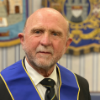
Stephen was initiated into Freemasonry in 1978 in Tylney Lodge No. 5856 (UGLE). He was Master in 1989 & 2004.
He was Master of the Lodge of Union 38 (UGLE) in 2018. He is also a PZ in the Holy Royal Arch and PM in the Mark Degree.
Stephen served 30 years in the Metropolitan Police Service (London, England) before going into education in 2000, where he became a college lecturer and a mentor for both the college and the University of Greenwich (London, England). Now retired, he teaches Tai Chi and Qigong in the community.
Facebook: Steve Goulding-Tai Chi West Sussex–Chi at Chi
Recent Articles: in this tutorial series
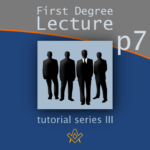 William Preston (1742 – 1818) gives his lectures in the form of a Catechism – questions and answers - and broken down into seven bite size chunks. This article is the first of the seven part series presented by Steve Goulding |
 William Preston (1742 – 1818) gives his lectures in the form of a Catechism – questions and answers - and broken down into seven bite size chunks. This article is the first of the seven part series presented by Steve Goulding |
 William Preston (1742 – 1818) gives his lectures in the form of a Catechism – questions and answers - and broken down into seven bite size chunks. This article is the first of the seven part series presented by Steve Goulding |
 William Preston (1742 – 1818) gives his lectures in the form of a Catechism – questions and answers - and broken down into seven bite size chunks. This article is the first of the seven part series presented by Steve Goulding |
 William Preston (1742 – 1818) gives his lectures in the form of a Catechism – questions and answers - and broken down into seven bite size chunks. This article is the first of the seven part series presented by Steve Goulding |
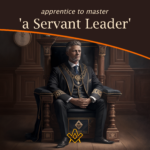 Apprentice to Master, “a Servant Leader”. Freemasonry is a learning platform used to improve a lifestyle which is morally, educationally and spiritually sound. To guide a person through life in order to be the best they can be. A Master, or ‘Servant Leader,’ develops those people in their care. They are someone who can guide others using the principles of Freemasonry - By Stephen J. Goulding |
 William Preston (1742 – 1818) gives his lectures in the form of a Catechism – questions and answers - and broken down into seven bite size chunks. This article is the second of the seven part series presented by Steve Goulding |
 William Preston (1742 – 1818) gives his lectures in the form of a Catechism – questions and answers - and broken down into seven bite size chunks. This article is the first of the seven part series presented by Steve Goulding |
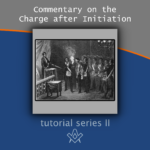 Commentary on the Third Degree Charge The Third Degree Charge invites the candidate to reflect on his life as both a ‘moral’ and ‘educated’ man, and to contemplate on what may be missing in his life. The ‘genuine secrets of a Master Mason’. |
 Commentary on the Second Degree Charge In the second degree we learn about being an educated man. Skilful, not only in the Craft itself but also how to communicate and manage others. This Commentary looks at the second degree charge in detail. |
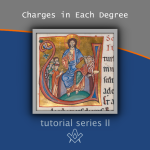 The ‘Old Charges’ have come down to us, containing the rules and regulations by which Lodges should be run and the moral and social standards to which each Lodge member should adhere. |
 Steps to the Making of a Master. The symbolism of each step of the winding staircase is to continue your personal development throughout your life, right up to your last breath in this world. |
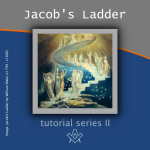 On the First Degree tracing board the most dominant feature is Jacob’s Ladder stretching from Earth to Heaven. Being straight, it is the shortest and quickest way to reach heaven, and being straight you can see the end goal. |
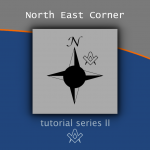 The North East Corner: A Lesson on Charity The ritual of the North East corner is a powerful piece of teaching. Let us examine that piece of ritual more closely; the lesson on charity. |
 When we look at the ritual book the deacons are told to ‘perambulate’ with the candidate. So what does this really mean? |
 The taking of a ‘Vow of Fidelity’. Oaths, Vows and Covenants |
 Morality veiled in allegory and illustrated by symbols A phrase that immediately comes to mind when describing Freemasonry – Morality veiled in allegory and illustrated by symbols. Let us have a look at what this phrase actually means. |
 Officers of the Royal Arch - The Principals The Principals' role in the Royal Arch, representing the pinnacle of spiritual leadership. Their esoteric significance lies in the unity of the three aspects of the divine, emphasizing the importance of harmony and balance in attaining spiritual enlightenment. The Principals embody the ultimate goal of the Royal Arch journey - the realization of divine wisdom. |
 Officers of the Royal Arch - Scribe Ezra Scribe Ezra is portrayed as a crucial figure within the Royal Arch, responsible for interpreting and teaching divine laws. The significance of his role lies in the pursuit of understanding and applying sacred knowledge, emphasizing the transformative power of wisdom when applied to one's life. |
 Officers of the Royal Arch - Scribe Nehemiah Scribe Nehemiah's responsibility within the Royal Arch, is that of preserving the sacred teachings. Scribe Nehemiah symbolizes the importance of maintaining accurate records and upholding the integrity of divine knowledge, thus reflecting the value of safeguarding spiritual wisdom for future generations. |
 Officers of the Royal Arch - The Sojourners The Sojourners, are seekers of truth, their journey symbolizes the spiritual path to enlightenment. Their role in rediscovering lost wisdom highlights the esoteric concept of regaining divine knowledge through perseverance and self-discovery. |
 Commentary on the Charge after Initiation A more detailed explanation in order for us to understand the Charge after Initiation |
 Officers of the Royal Arch - The Janitor The Janitor, is a crucial officer in the Royal Arch. Symbolically, the Janitor represents the guardian of sacred knowledge, ensuring only worthy individuals gain access. This function emphasizes the importance of maintaining spiritual purity and safeguarding the mysteries of the Royal Arch. |
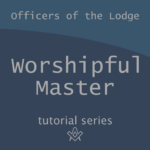 Officers of the Lodge - Worshipful Master Worshipful Master: the highest-ranking officer in the lodge, is the embodiment of wisdom and authority. The Worshipful Master guides the brethren on their spiritual path, representing the divine light that illuminates the Masonic quest for knowledge and self-discovery. |
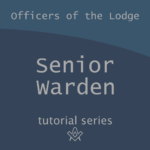 Officers of the Lodge - Senior Warden Senior Warden: embodies the essence of strength and stability within the lodge. As the pillar of support for the Worshipful Master, the Senior Warden symbolizes the fortitude required on our spiritual journey, inspiring us to persevere in the face of adversity |
 Officers of the Lodge - Junior Warden Junior Warden: Ensuring the well-being of the brethren during the lodge's hours of refreshment. Representing the virtue of temperance, the Junior Warden reminds us to find balance in our lives and cultivate moral discipline in our pursuit of truth. |
 Officers of the Lodge - Deacons Deacons: The messengers and intermediaries within the lodge. Representing the communication between the material and the spiritual realms, Deacons symbolize the importance of transmitting knowledge and wisdom as we strive for personal growth and enlightenment on our Masonic journey. |
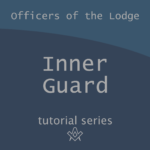 Officers of the Lodge - Inner Guard Inner Guard: Is the first line of defence against unworthy intruders, the Inner Guard represents our inner conscience and the personal responsibility we have to safeguard the integrity of our spiritual journey. |
 Tyler: The significance as the protector of the lodge's secrets and harmony. Tasked with guarding the entrance, the Tyler symbolizes our spiritual and moral boundaries, ensuring only worthy candidates are allowed into the sacred space of Freemasonry's teachings and rituals. |
masonic knowledge
to be a better citizen of the world
share the square with two brothers

click image to open email app on mobile device



